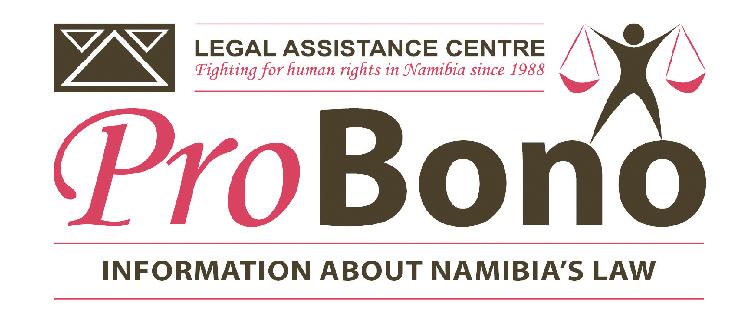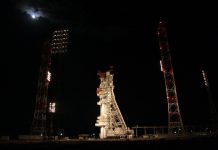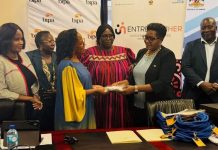Africa-Press – Namibia. ‘NATURAL CAPITAL ACCOUNTING’ describes the value of the environmental inventory for a society.
It explores the relationships between the economy, human development, and the environment.
Linked to the concept of natural capital are the premises of the Sustainable Development Goals (SDGs), adopted by the United Nations in 2015.
The SDGs constitute a universal call to action to end poverty, protect the planet, and ensure that by 2030 all people enjoy peace and prosperity.
The SDGs are integrated.
They recognise that action in one area would affect outcomes in others and that any development must balance social, economic and environmental sustainability.
The SDGs are designed, among other things, to end poverty and hunger with a strong emphasis on sustainable development and good, effective state administration.
To achieve sustainable development with respect to people, planet, prosperity, peace and partnership, all governments have obligations to equitably meet the economic and environmental needs of present and future generations.
In addressing development and growth aspirations, communities, policymakers, regulators, and national bodies are to balance these objectives with a corresponding balanced and rational sustainable-use framework guiding the exploitation and protection of the natural environment and its biological diversity.
For Namibia’s policymakers, regulators and others, guidance on how to do this stems from the Namibian Constitution.
The Constitution emphatically recognises the self-evident truth that the environment serves as the foundation for life, society and all human activities, including economic development.
It acknowledges that humans are part of and not separate from the environment, and have legal duties and obligations to it.
What we do to the environment, we do to ourselves.
The Environmental Management Act says “environment” means “the complex of natural and anthropogenic [human-generated] factors and elements that are mutually interrelated and affect the ecological equilibrium and the quality of life, including (a) the natural environment that is the land, water and air, all organic and inorganic material and all living organisms; and (b) the human environment that is the landscape and natural, cultural, historical, aesthetic, economic and social heritage and values”.
Things like forests, rivers, wildlife or non-renewable minerals are nature’s generous supply of natural capital inputs.
These public resources are harnessed by some and sold to a diverse market, where such inputs become timber, water supply, trophies or ores, which flow into the economy.
Here, industries and businesses process these inputs, transforming them into products which are consumed by households and governments, or are sold or exchanged.
In the course of this process, residuals such as emissions or return flows are generated, flowing back from the economy into the impacted environment from which the resources are extracted.
While some of these flows between the economy and environment have positive outcomes and long-term economic benefits for people, others may have adverse impacts on the environment.
Input and supply must be delicately balanced without killing the goose that lays the golden eggs.
Negative human actions driven by false economies lead to the depletion of natural capital, which is widely recognised as the root cause of poverty.
Many threats to Namibia’s environmental integrity have emerged as renewable and non-renewable resources are coveted, harvested and traded by a host of competing public and private interests in a manner often creating conflict, discontent, and distrust.
The political and economic reality in Namibia means that few people actually have any opportunity to meaningfully participate in environmental decision-making processes, due to a lack of proper consultation.
When dominant interests are at play, economically enabled elites and state facilitators are often motivated to trade living and non-renewable resource reserves for quick monetary gain, ignoring long-term impacts on us, the people of Namibia.
Regulatory compliance is often seen merely as a way to provide a cloak of legitimacy to matters already decided behind closed doors in a non-transparent way.
In 1990 Namibia’s Green Plan recognised that “the health of individuals, society and the economy are inextricably linked to the health of the environment.”
Similarly, Namibia’s Vision 2030 was launched in 2004 as a vehicle for achieving the nation’s long-term sustainable development goals.
This vision aims, among other things, “to maintain the integrity of vital ecological processes, natural habitats and wild species throughout Namibia while significantly supporting national-social-economic development through sustainable low-impact consumptive and non-consumptive uses, as well as providing diversity of rural and urban livelihoods”.
The Environmental Management Act promotes inter-generational equity in the use of natural resources.
Environmental impact assessments and consultations with local communities are required to monitor the development of projects that potentially have an impact on the environment.
Vision 2030 calls for “development that meets the needs of the present generation without compromising the ability of future generations to meet their own needs”.
This principle should be kept in mind when determining the economics and long-term viability of the numerous impacts our exploitive activities and conduct have on our country’s natural capital, which we have borrowed from our children.
Public trust in the legal processes designed to protect Namibia’s environment is imperative to ensure that Namibia’s natural resources are equitably used and remain healthy for the benefit of ourselves and future generations.
– This column was produced with support from Bread for the World and the Hanns Seidel Foundation.
For More News And Analysis About Namibia Follow Africa-Press






